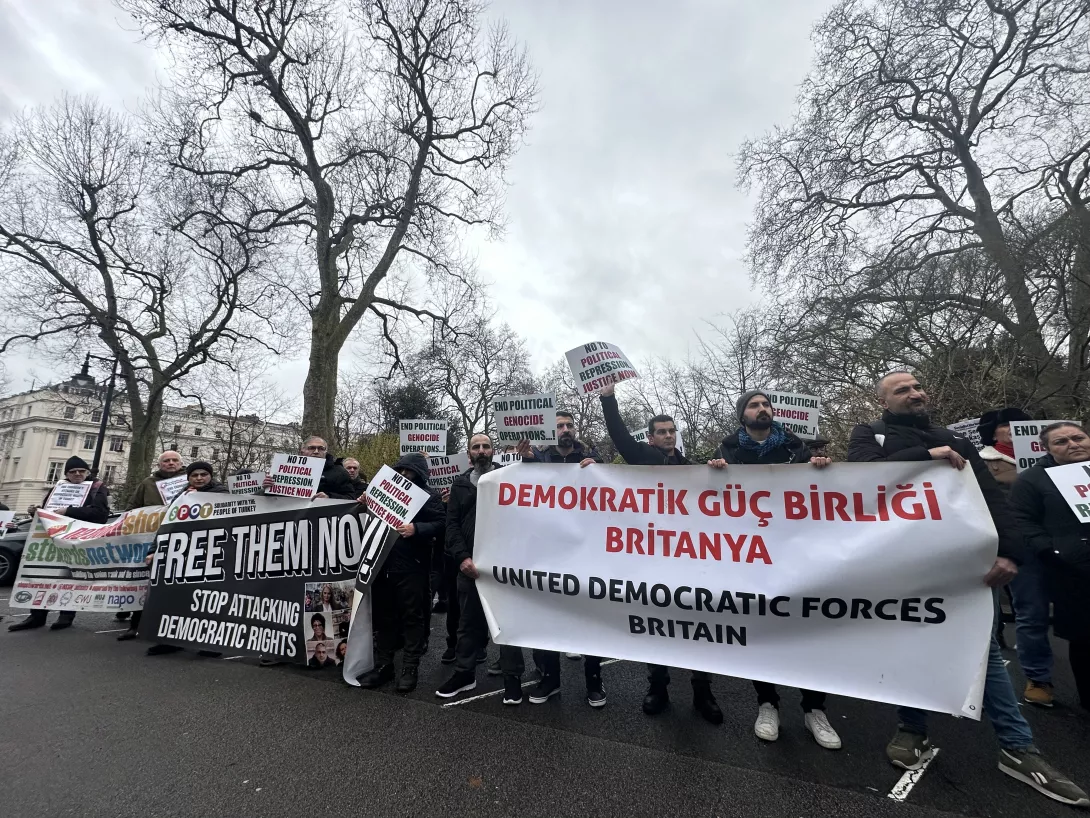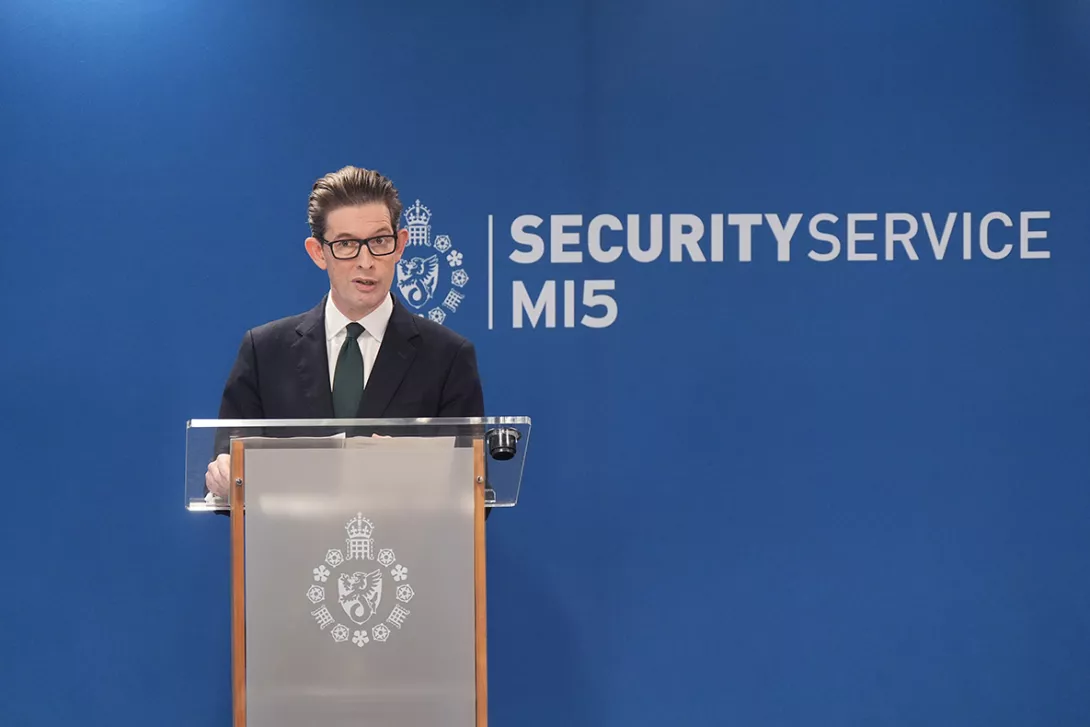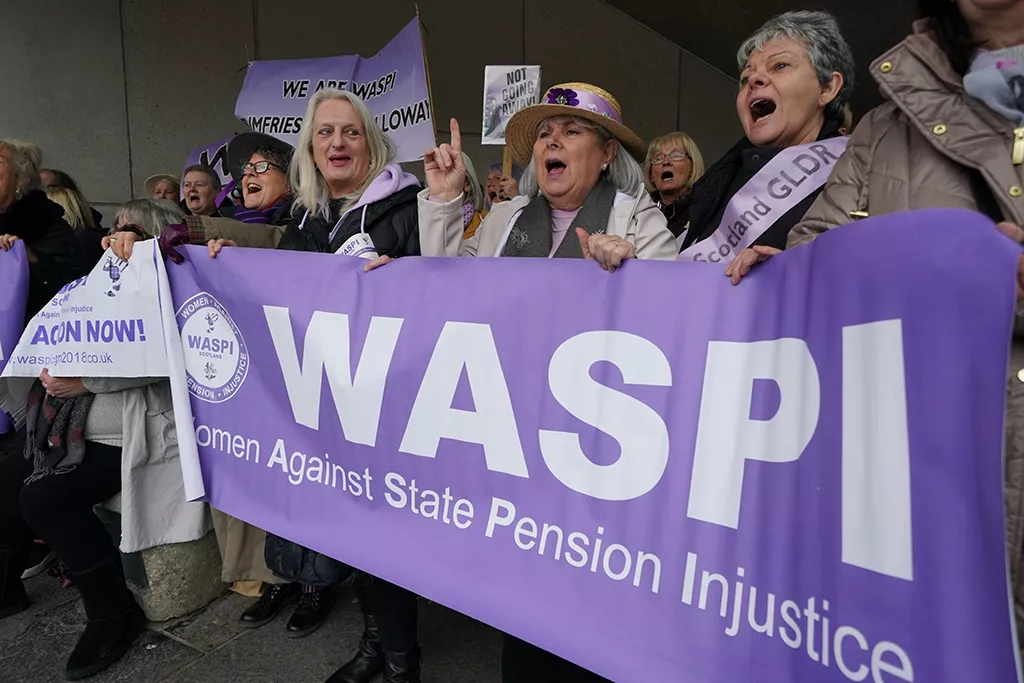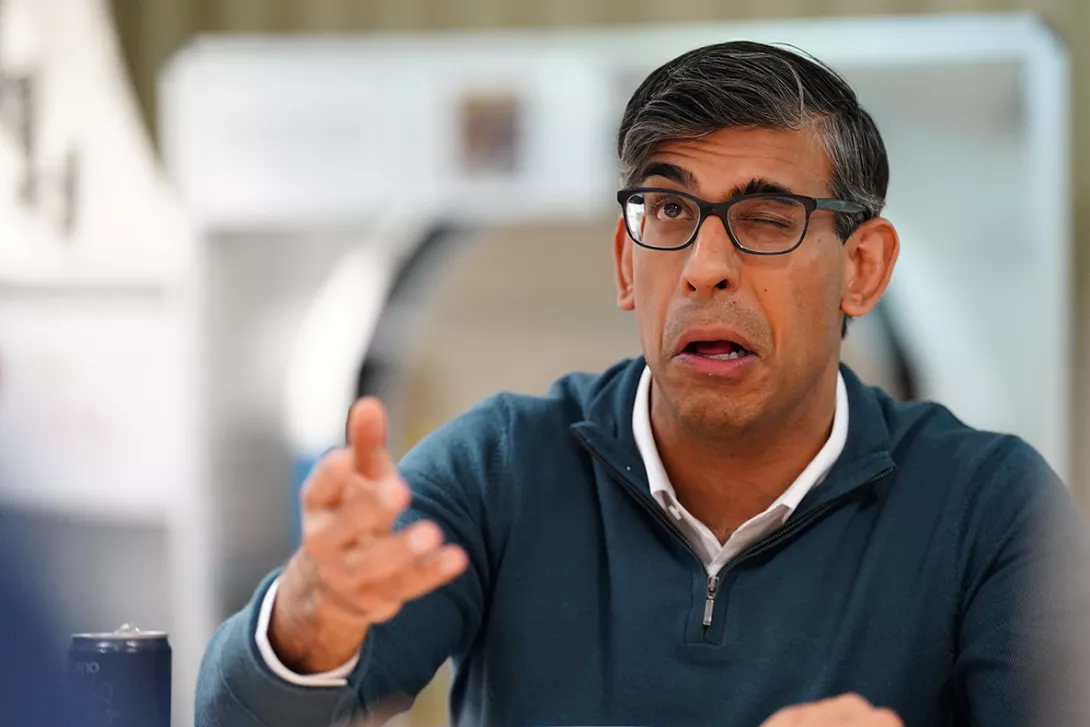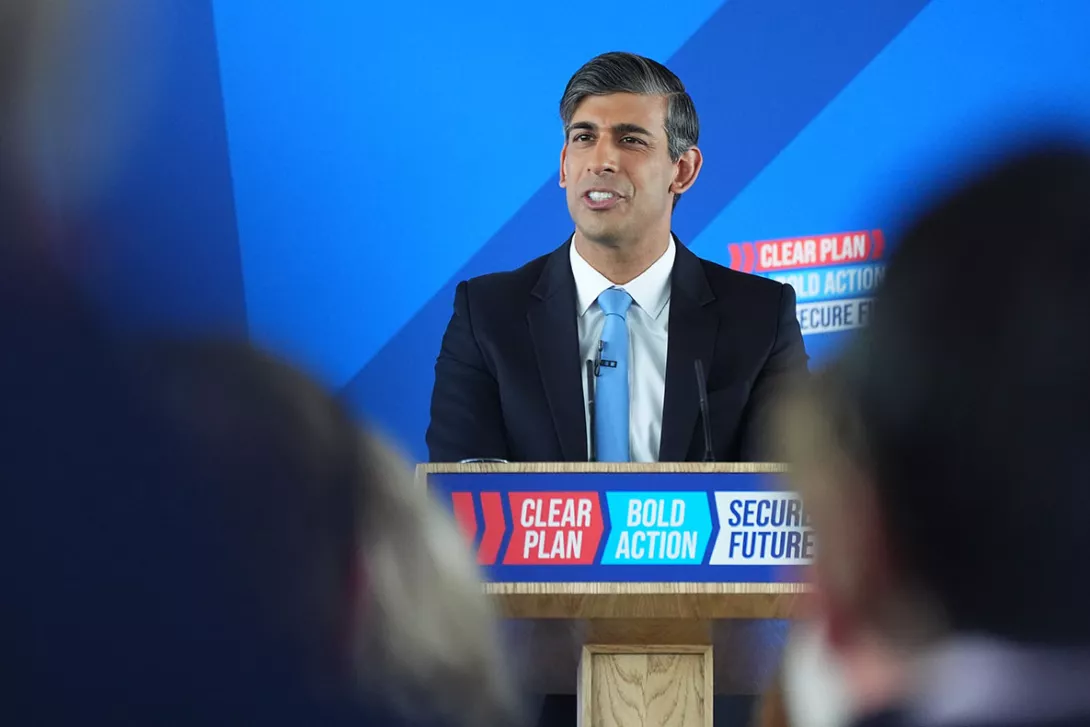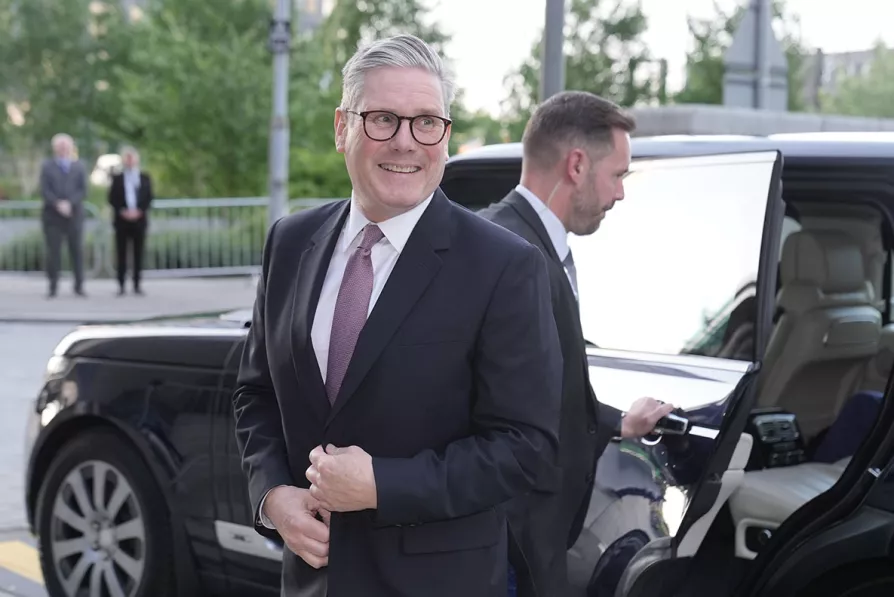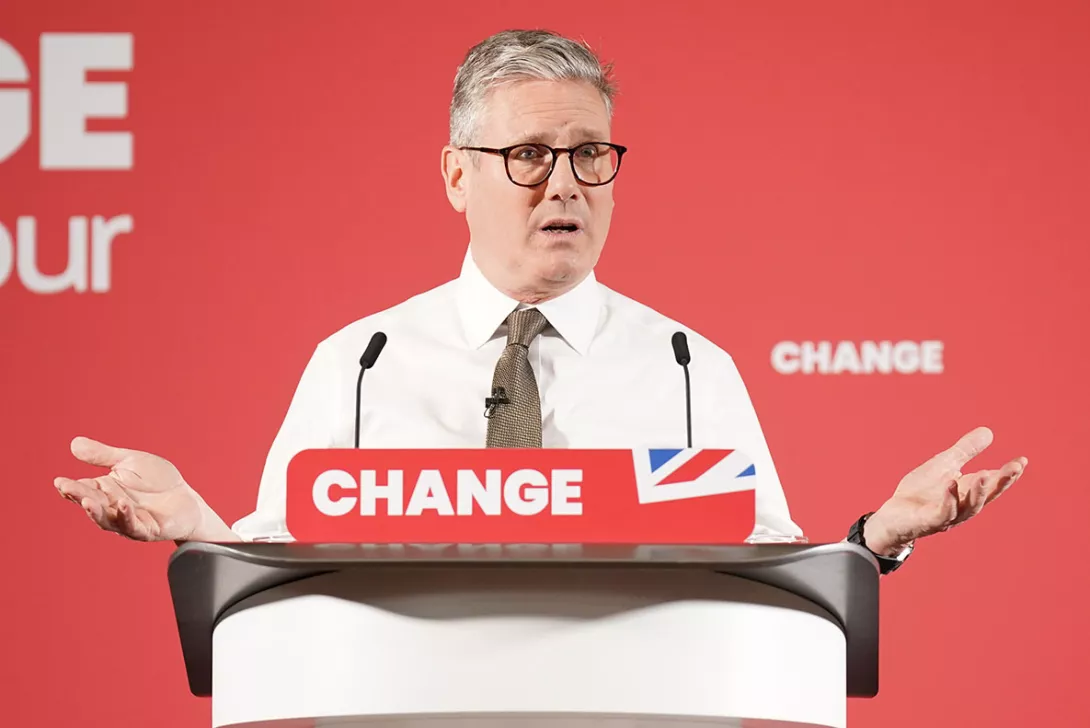Sunak relaunches Tories with appeal to pensioners
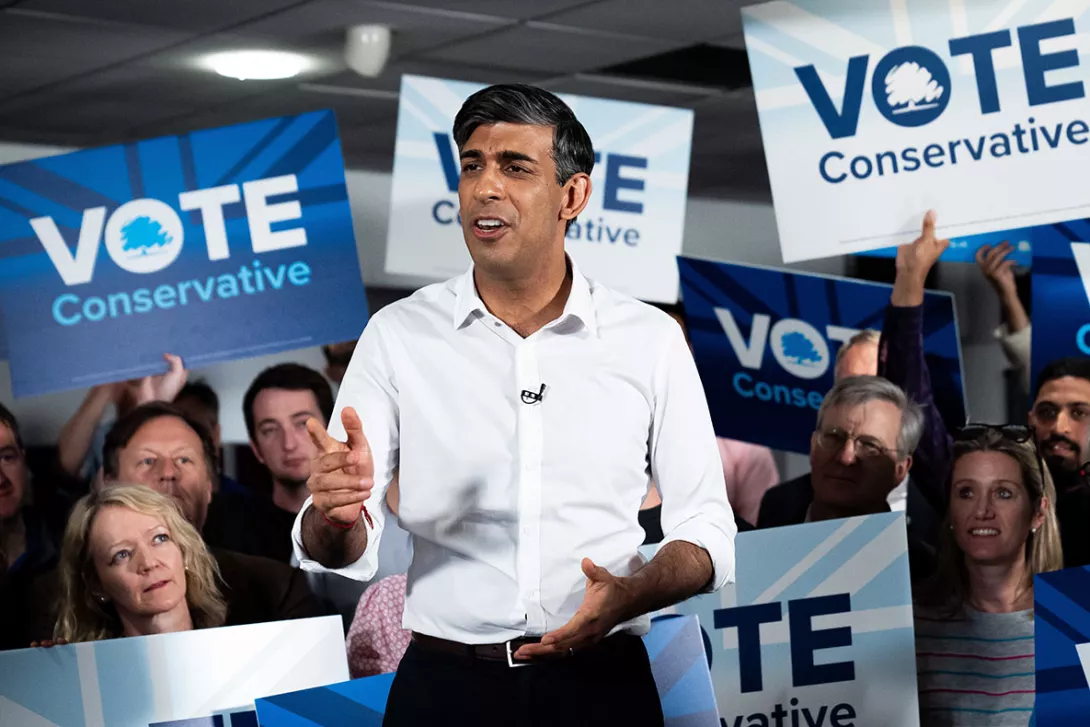
RISHI SUNAK tried to relaunch his floundering election campaign by offering tax breaks to pensioners, a core Tory voting bloc in past polls.
He pledged to raise the income tax allowance for pensioners, giving them a tax cut worth around £95 next year rising to £275 by the end of the decade.
His move — which would cost £2.4 billion — comes after a disastrous first week of the Tory campaign, including a missing umbrella at the launch, a visit to a centre named after a sunk ship, the defection of an MP to the Reform party and a widely ridiculed and unprepared teenage conscription plan.
More from this author
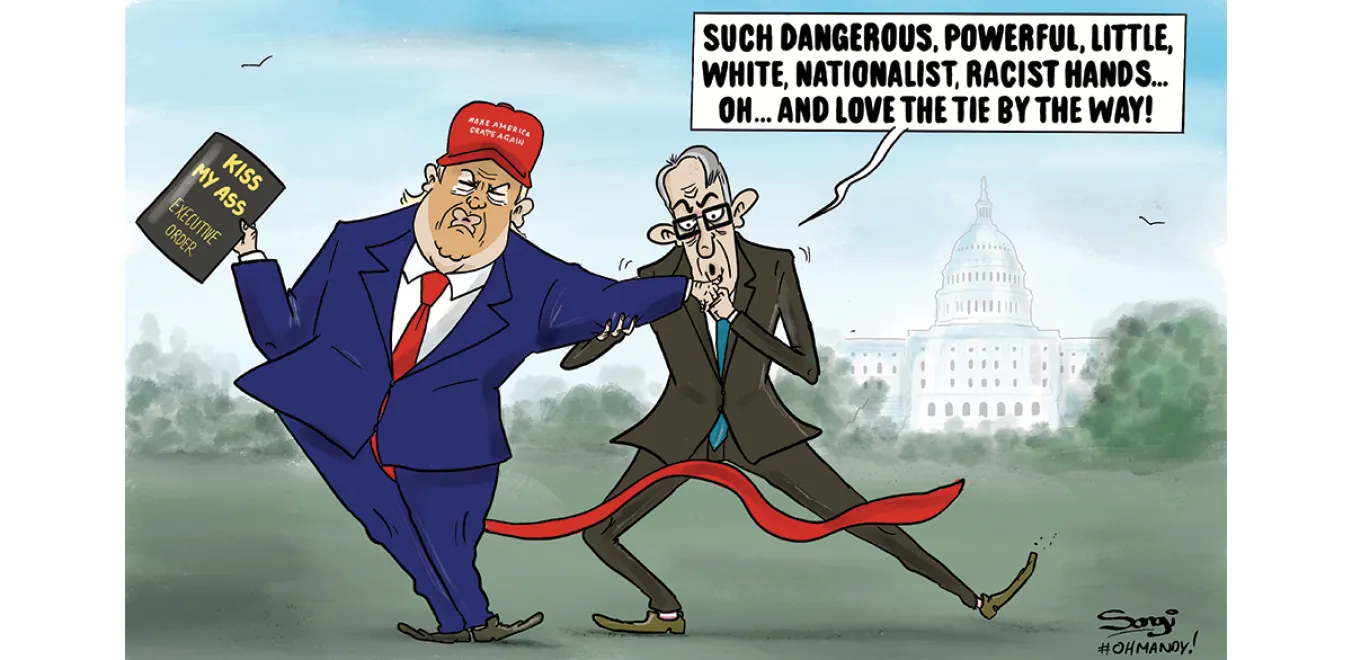
ANDREW MURRAY surveys a quaking continent whose leaders have no idea how to respond to an openly contemptuous United States

Hundreds protest outside Westminster Magistrates’ Court as Stop the War Coalition and Palestine Solidarity Campaign activists attend court


